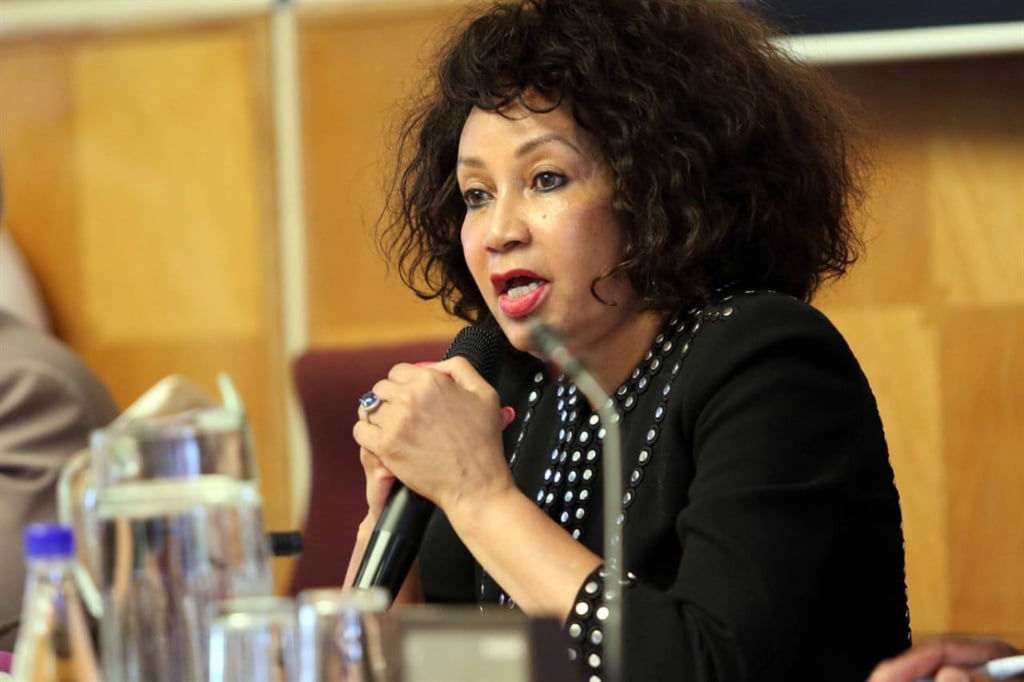


Minister of Human Settlements, Water and Sanitation Lindiwe Sisulu.
Department of Water and Sanitation via Twitter
- More than R2 billion has been allocated to upgrade informal settlements in the hope of reducing Covid-19 infections through improved living conditions.
- Funds will also be spent on providing better access to water and sanitation.
- Gauteng receives the lion’s share of the grant with an allocation of R694 million for 311 informal settlements identified for funding in 2020-21.
Government has allocated more than R2 billion to upgrade informal settlements in the hope of reducing Covid-19 infections through improved living conditions and better access to water and sanitation.
LIVE | All the latest coronavirus and lockdown updates
Human Settlements, Water and Sanitation Minister Lindiwe Sisulu briefed the National Council of Provinces (NCOP) on the department’s Covid-19 response plan on Tuesday.
Sisulu said Covid-19 has had a direct impact on the services they deliver.
“We think that the solution that we have found in this particular crisis should be the one that we use. Invest right now in temporary shelter and make sure that as the economy picks up, we use this as a cornerstone of [the] economy. Construction invariably provides any economy with the necessary boost. We saw it in 2010 when we were building the stadiums and we can see it now,” Sisulu said.
Acting human settlements director general Joseph Leshabane said the R2.4 billion Upgrading of Informal Settlements Programme (UISP) grant will be spent on improving access to water and sanitation in informal settlements.
Dense and overcrowded informal settlements
In his presentation, Leshabane said the department’s programmes will also focus on improving living conditions to reduce the rate of Covid-19 infection in these areas, enable households to observe physical and social distancing and self-isolation.
Leshabane said they are moving ahead with the resettlement of identified dense and overcrowded informal settlements, including hostels and transitional residential areas.
Gauteng receives the lion’s share of the R2.4 billion grant with an allocation of R694 million for 311 informal settlements identified for funding in 2020-21.
KwaZulu-Natal receives R447 million for 179 identified informal settlements while the Western Cape has been allocated R286 million for its 96 informal settlements identified.
Leshabane said the entities of the department were requested to ensure relevant and required measures were taken in each of the component sectors like the Estate Agency Affairs Board, the Social Housing Regulatory Authority (SHRA), the National Home Builders Registration Council and Community Schemes Ombud Service.
“(These) include guidelines for sectional title and community schemes on conduct during lockdown periods. Provision of rental relief in regulated social rental housing and provision of sector Covid-19 workplace guidelines for employers. A set of directions will provide clarity on matters related to evictions, provision of alternative accommodation for households in informal settlements, hostels and the inner city,” he said.
NCOP chairperson Amos Masondo said the Covid-19 pandemic came at a time when the country found itself in the midst of a fiscal quandary.
“Our Constitution entrenches the right of everyone to have access to sufficient water. It obliges the state to take reasonable legislative and other measures, within its available resources, to achieve the progressive realisation of this right. This constitutional injunction extends to access to housing, which is made somewhat difficult by the ever-increasing challenges,” Masondo said.
Stay healthy and entertained during the national lockdown. Sign up for our Lockdown Living newsletter. Sign up and manage your newsletters in the new News24 app by clicking on the Profile tab

